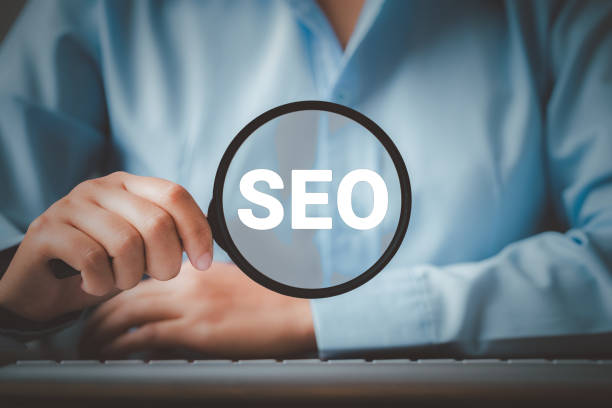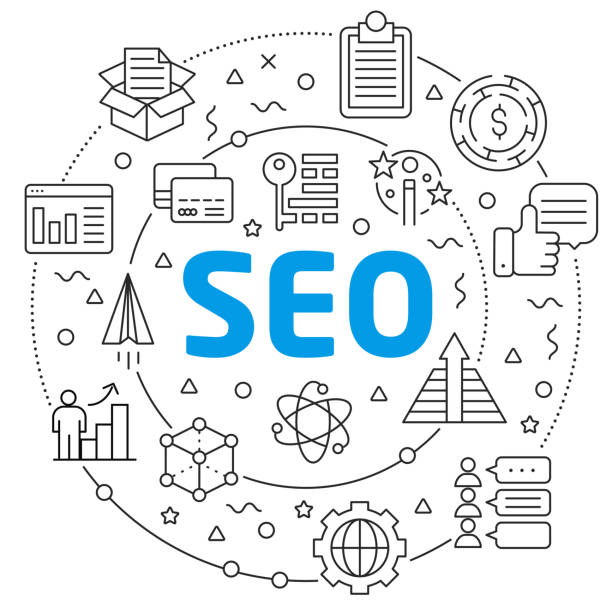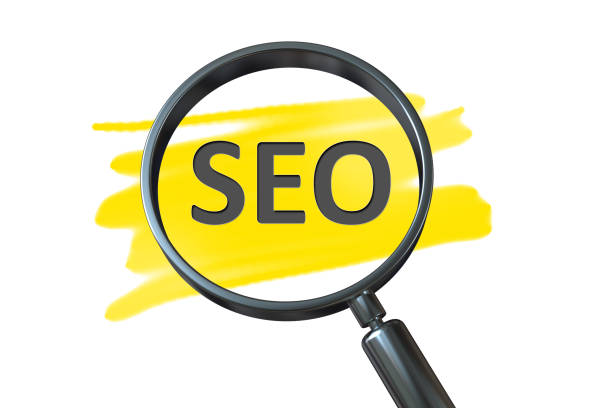What is SEO and why is it important?

What is SEO and why is it important?
SEO (Search Engine Optimization) means search engine optimization.
This process involves a set of techniques and strategies to improve a website’s ranking in search engine results like Google, Bing, and Yahoo.
The ultimate goal of SEO is to increase organic (non-paid) traffic to the website.
The importance of SEO can be justified for several reasons.
Firstly, most internet users use search engines to find the information, products, and services they need.
Therefore, being on the first pages of search results can dramatically increase the visibility and accessibility of a website.
Proper SEO increases site visits and consequently increases #sales.
Secondly, organic traffic from SEO is usually of higher quality than traffic from paid advertising.
Users who enter a website through search are actively looking for information related to the website’s content and are more likely to become customers.
Thirdly, SEO can help improve brand credibility and trust.
Websites that rank high in search results are usually recognized as reliable and trustworthy sources.
SEO is a continuous and dynamic process that requires updates and adaptation to changes in search engine algorithms.
However, investing in SEO can yield significant returns in the long run.
Is your online sales not what you expect? With Rasaweb, solve the problem of low sales and poor user experience forever!
✅ Increase visitor-to-customer conversion rates
✅ Create an enjoyable user experience and increase customer trust
⚡ Take action now for a free consultation!
Keyword Research: The Main Foundation of an SEO Strategy

Keyword Research: The Main Foundation of an SEO Strategy
Keyword research is one of the most important steps in the SEO process.
Keywords are phrases that users use to search for information in search engines.
Choosing appropriate keywords relevant to the content of the website is key to success in attracting organic traffic.
The keyword research process involves identifying and evaluating words that users are most likely to search for to find your website.
Various tools exist for this purpose, including Google Keyword Planner, SEMrush, and Ahrefs.
These tools help you identify keyword search volume, competition, and related keywords.
The main keyword for your site should be related to your services and sales, for example, if you sell shoes.
When choosing keywords, consider the following:
- Relevance: Keywords should be relevant to the content of your website.
- Search Volume: Keywords should have a significant search volume.
- Competition: Keywords should have reasonable competition.
Targeting keywords with very high competition will be difficult. - User Intent: Think about what users are looking for when searching for these keywords.
After identifying appropriate keywords, you should strategically use them in the content of your website.
This includes using keywords in page titles, meta descriptions, headings, and body text.
On-Page Optimization: Attractive Structure and Content

On-Page Optimization: Attractive Structure and Content
On-Page optimization refers to the set of actions taken within the website to improve its ranking in search results.
This includes optimizing website structure, content, HTML tags, and other internal elements of the website.
On-Page SEO is one of the most vital parts of SEO.
The most important elements of On-Page optimization are:
- Page Titles (Title Tag): Page titles should be attractive, relevant to the content, and include the main keyword.
- Meta Descriptions: Meta descriptions are a summary of the page content that is displayed in search results.
These descriptions should be engaging and persuasive to encourage users to click on your website link. - Headings: Using headings (H1, H2, H3, …) helps organize content and improve readability.
Headings should be relevant to the content and include keywords. - Content: Website content should be high-quality, relevant, valuable, and unique.
Using keywords naturally and in the text of the content is essential. - URL Structure: The URL structure should be simple, readable, and include keywords.
- Images: Images should be optimized (small size and file name related to the content) and have alternative text (Alt Text).
- Internal Links: Using internal links helps guide users and search engines within the website.
The table below shows an example of optimized and non-optimized URL structures:
| Optimized URL | Non-Optimized URL |
|---|---|
| https://www.example.com/blog/seo-guide | https://www.example.com/page?id=123 |
| https://www.example.com/products/red-shoes | https://www.example.com/products?category=shoes&color=red |
On-Page SEO requires attractive and practical content.
Producing good content is one of the main pillars of good SEO.
Off-Page Optimization: Link Building and Social Media Presence

Off-Page Optimization: Link Building and Social Media Presence
Off-Page optimization refers to the set of actions taken outside of the website to improve its ranking in search results.
The most important factor in Off-Page optimization is Link Building.
Off-Page SEO includes optimizing the site outside of the site.
Link building means getting links from other websites to your website.
The more links received from reputable and relevant websites, the greater the impact on your website’s ranking.
Principled link building can bring your site to the top rankings.
There are various methods for link building, including:
- Producing valuable content: Producing high-quality and valuable content increases the likelihood of other websites linking to your content.
- Guest blogging: Writing articles for other websites and placing a link to your website in the text of the article.
- Participating in forums and communities: Participating in forums and communities related to your field and providing helpful answers to users’ questions can help you get high-quality links.
- Advertising: Advertising on reputable websites.
In addition to link building, an active presence on social media can also help improve Off-Page SEO.
Sharing website content on social media can help increase visits and visibility of your website.
Although social media links are NoFollow, they have a significant impact on site SEO.
Incoming and high-quality links from other sites improve your site’s ranking.
Does your current website build the trust that potential customers should have in your business? If the answer is no, it’s time to have a professional and impactful corporate website with Rasaweb.
✅ Completely custom design tailored to your brand identity
✅ Increased lead attraction and credibility of your business in the eyes of customers⚡ Contact us for a free consultation!
Technical SEO: Optimized Infrastructure for Search Engines

Technical SEO: Optimized Infrastructure for Search Engines
Technical SEO refers to optimizing the technical aspects of a website so that search engines can easily crawl and index the website.
Technical SEO is an essential part of #site_optimization.
The most important factors in technical SEO are:
- Website Speed: Website page loading speed should be high.
Using speed testing tools such as Google PageSpeed Insights can help identify problems and improve website speed. - Mobile Compatibility: The website should be optimized for display on mobile devices (Responsive Design).
- Sitemap: Creating a sitemap helps search engines easily find and index all pages of the website.
- Robots.txt file: The Robots.txt file tells search engines which pages of the website should not be crawled.
- SSL Certificate: Using an SSL certificate is necessary to create a secure connection between the user and the website.
- URL Structure: The URL structure should be simple, readable, and include keywords.
- Structured Data: Using structured data helps search engines better understand the content of the website.
By optimizing the technical aspects of the website, you can help search engines easily find and index your website, which will improve your website’s ranking in search results.
User Experience (UX): An Important Factor in SEO Ranking

User Experience (UX): An Important Factor in SEO Ranking
User Experience (UX) refers to the feeling and perception of users when using a website.
The better the user experience, the more likely users are to return to the website and interact with its content.
Good user experience = Good SEO
Google and other search engines place great importance on user experience.
Websites that offer a good user experience usually get a better ranking in search results.
Factors that affect user experience include:
- Website Speed: Users expect website pages to load quickly.
- Design: The website design should be attractive, user-friendly, and consistent with the brand identity.
- Navigation: Website navigation should be easy and intuitive so that users can easily access the information they need.
- Content: Website content should be high-quality, relevant, valuable, and unique.
- Mobile Compatibility: The website should be optimized for display on mobile devices.
- Accessibility: The website should be accessible to all users, including people with disabilities.
By improving your website’s user experience, you can increase user satisfaction and improve your website’s ranking in search results.
Competitor Analysis: Identifying Opportunities and Threats

Competitor Analysis: Identifying Opportunities and Threats
Competitor analysis is one of the most important steps in developing an SEO strategy.
By analyzing competitors, you can identify their strengths and weaknesses and use this information to improve your SEO strategy.
Checking competitors is very important for improving #SEO.
In the competitor analysis process, you should pay attention to the following:
- Keywords: What keywords are your competitors using?
- Content: What type of content are your competitors producing? How is the quality of their content?
- Link Building: What websites are your competitors getting links from?
- Social Media: What social media platforms are your competitors active on? How do they interact with their audience?
- Technical SEO: What technical SEO techniques are your competitors using?
By collecting this information, you can identify the strengths and weaknesses of your competitors and use this information to improve your SEO strategy.
For example, if you notice that your competitors rank well for a specific keyword, you can produce higher quality and more comprehensive content about that keyword.
Or if you notice that your competitors are getting links from reputable websites, you can try to get links from the same websites.
The table below shows an example of competitor analysis for a shoe retail business:
| Competitor | Main Keywords | Strengths | Weaknesses |
|---|---|---|---|
| Shoe Store A | Buy shoes, men’s shoes, women’s shoes | High-quality content, strong link building | Slow website speed |
| Shoe Store B | Sports shoes, formal shoes, leather shoes | Attractive website design, active social media presence | Weak content, weak link building |
Measuring and Tracking SEO Results

Measuring and Tracking SEO Results
Measuring and tracking SEO results is essential for evaluating the effectiveness of your SEO strategy and identifying opportunities for improvement.
Without measuring results, you can’t tell if your SEO efforts have been effective or not.
Tracking your website SEO is very important.
The most important metrics to measure and track in SEO are:
- Organic Traffic: The amount of traffic that enters your website through search engines.
- Keyword Ranking: Your website’s ranking for target keywords.
- Click-Through Rate (CTR): The percentage of users who click on your website link after seeing it in search results.
- Conversion Rate: The percentage of visitors who take the desired action (such as buying a product, filling out a form, or contacting you).
- Bounce Rate: The percentage of visitors who leave your website after viewing only one page.
- Time on Page: The average time visitors spend on your website pages.
There are various tools available for measuring and tracking SEO results, including Google Analytics and Google Search Console.
Using these tools, you can get accurate information about website traffic, keyword ranking, click-through rate, conversion rate, bounce rate, and time on page.
By analyzing this information, you can identify the strengths and weaknesses of your SEO strategy and take necessary actions to improve it.
SEO is a time-consuming process and you shouldn’t expect to see results quickly.
Are you annoyed by losing customers due to the outdated appearance or slow speed of your online store? Rasaweb’s team of experts solves these problems with professional online store design!
✅ Increased customer trust and credibility of your brand
✅ Astonishing speed and excellent user experience
Get a free consultation with Rasaweb now ⚡
Practical Tools in SEO

Practical Tools in SEO
For performing search engine optimization (SEO), there are various tools available, each with its own specific applications.
These tools help SEO professionals perform the analysis, optimization, and result tracking process more effectively.
Many sites offer SEO-related services.
Some practical tools in SEO include:
- Google Analytics: A tool for analyzing website traffic and user behavior.
- Google Search Console: A tool for managing website presence in Google search results.
- Google Keyword Planner: A tool for keyword research.
- SEMrush: A comprehensive tool for competitor analysis, keyword research, rank monitoring, and technical SEO review.
- Ahrefs: A tool for analyzing backlinks, keyword research, and competitor analysis.
- Moz Pro: A tool for analyzing On-Page, Off-Page, and Technical SEO.
- Ubersuggest: A tool for keyword research, competitor analysis, and getting content ideas.
- PageSpeed Insights: A tool for testing website speed and providing suggestions for improving it.
Choosing the right tool depends on your needs and budget.
Some of these tools are free and some are paid.
Using these tools, you can perform the SEO process more effectively and achieve better results.
SEO (Search Engine Optimization) means optimizing websites for search engines like Google and its goal is to increase the visibility of the website in search results and attract organic traffic.
The Future of SEO: Changes and Challenges

The Future of SEO: Changes and Challenges
SEO is a dynamic industry that is constantly changing and evolving.
Search engine algorithms are regularly updated, and techniques that are effective today may lose their effectiveness tomorrow.
Therefore, to succeed in SEO, you must always be up-to-date and adapt to new changes and challenges.
Using an #SEO consultant can help you.
Some of the most important changes and challenges facing SEO include:
- Artificial Intelligence (AI): The use of artificial intelligence in search engine algorithms has improved their understanding of website content and user intent.
Therefore, producing high-quality content that is relevant to the user’s purpose has become more important. - Voice Search: With the increasing use of smart devices and voice assistants, voice search has also become more important.
Therefore, you should optimize your website for voice search. - User Experience (UX): Google and other search engines place great importance on user experience.
Websites that offer a good user experience usually get a better ranking in search results. - Mobile-First: Google prioritizes websites that are optimized for display on mobile devices.
Therefore, you should optimize your website for mobile-first. - Website Security: Google values website security.
Using an SSL certificate and following security tips can help improve your website’s ranking in search results.
By understanding these changes and challenges, you can update your SEO strategy and prepare for success in the future.
SEO (Search Engine Optimization) is a digital marketing approach that aims to increase a website’s ranking in search engine results pages (SERP).
Frequently Asked Questions
| Question | Answer |
|---|---|
| What is SEO? | SEO, or Search Engine Optimization, is a process to increase the quality and quantity of website traffic by improving the site’s ranking in natural (organic) search engine results such as Google. |
| What are the main types of SEO? | SEO is divided into three main categories: On-Page SEO, Off-Page SEO, and Technical SEO. |
| What does On-Page SEO include? | On-Page SEO includes optimizing elements within the website, such as keywords, page title (Title Tag), meta descriptions (Meta Description), content, URL structure, images, and internal links. |
| What is Off-Page SEO? | Off-Page SEO refers to activities outside the website that help improve its ranking, such as backlink building, social media marketing, and brand mentions. |
| What is Technical SEO? | Technical SEO focuses on optimizing the technical aspects of the website to help search engines crawl and index it better. This includes site speed, mobile-friendliness, site structure, sitemaps, and the Robots.txt file. |
| What role do keywords play in SEO? | Keywords are terms that users enter into search engines. The correct and targeted use of relevant keywords in content and site elements helps search engines understand the topic of your page and display it for relevant searches. |
| What is a Backlink and why is it important? | A backlink, or inbound link, is a link from one website to another. Backlinks act as a “vote of confidence” from other sites for search engines and play an important role in the site’s credibility and ranking increase, especially if they are from reputable sites. |
| How does quality content affect SEO? | High-quality, relevant, comprehensive, and unique content not only attracts and retains users but also shows search engines that your page is valuable. This helps improve ranking, reduce Bounce Rate, and increase user time on the site. |
| Why is site loading speed important for SEO? | Site loading speed is an important ranking factor for Google. Faster sites provide a better user experience, have lower bounce rates, and are preferred by search engines. |
| Is SEO a one-time process? | No, SEO is a continuous and long-term process. Search engine algorithms are constantly changing, competition is increasing, and site content also needs to be updated. Therefore, SEO requires continuous monitoring, analysis, and optimization. |
And other services of Rasa Web advertising agency in the field of advertising
Smart Website Development: A new service to increase SEO ranking by designing an attractive user interface.
Smart Marketing Automation: A professional solution for analyzing customer behavior with a focus on custom programming.
Smart Advertising Campaign: A creative platform to improve customer acquisition by customizing the user experience.
Smart Custom Software: Designed for businesses looking to increase sales through marketing automation.
Smart Digital Branding: An exclusive service to grow customer acquisition based on the use of real data.
And more than hundreds of other services in the field of internet advertising, advertising consulting, and organizational solutions
Internet Advertising | Advertising Strategy | Advertorial Report
Resources
SEO Guide from Search Engine Journal
,SEO Strategy from Ahrefs
,What is SEO? from Moz
,SEO Checklist from Semrush
? Are you ready to transform your business in the digital world? Rasaweb Aferin Digital Marketing Agency, specializing in SEO, online advertising, and custom website design, is your trusted partner on the path to growth. Contact us today for a powerful presence on the web!
📍 Tehran, Mirdamad Street, next to the Central Bank, South Kazerun Alley, Ramin Alley No. 6




